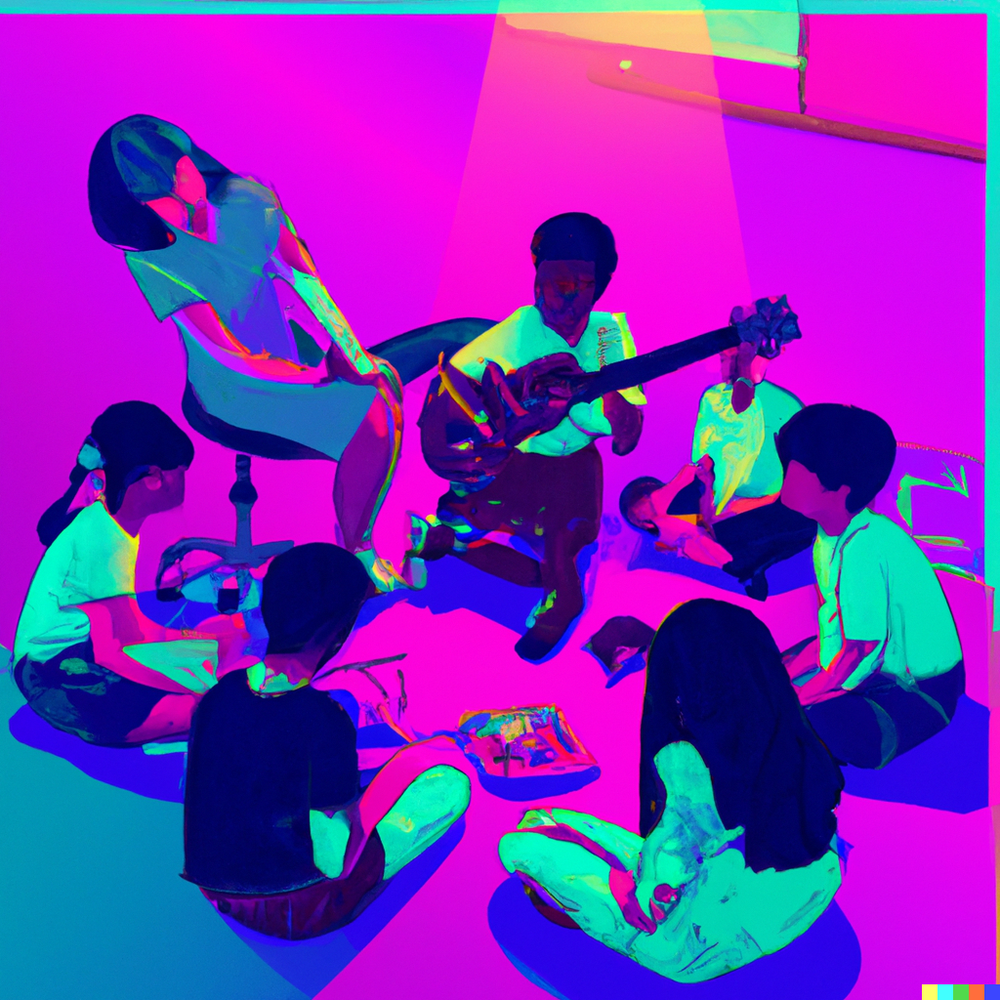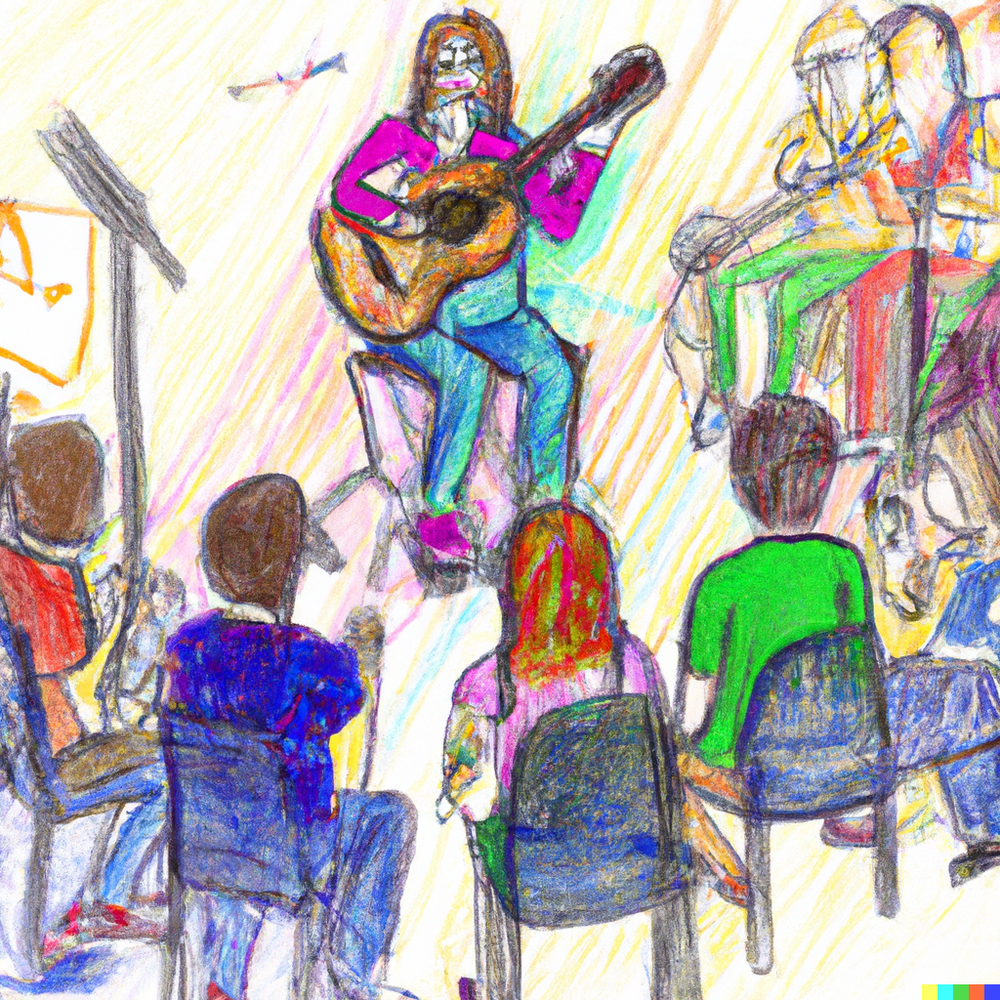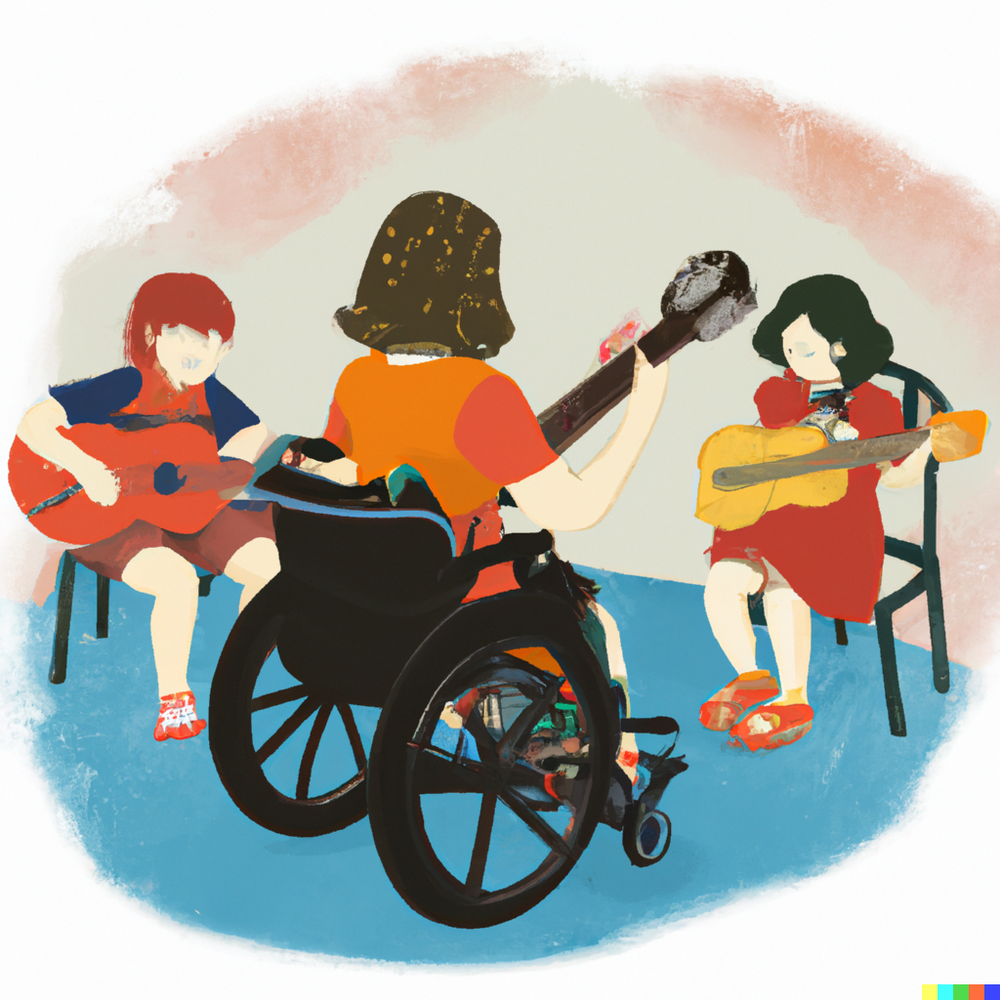Artificial intelligence at the music school
Everyone's talking about AI. Tools such as ChatGPT or Midjourney, which create text and images respectively, are well known. But what about music? What possibilities does AI offer for music teaching?
One thing is clear: AI is calling out to us. Countless songs generated by artificial intelligence are already circulating on the Internet. Miley Cyrus singing Radiohead? It's entirely possible, and the result is surprisingly good. There's no doubt that a wave of as yet unforeseen consequences is about to sweep through the music world. The pedagogical context won't escape it: we're already wondering whether an AI interlocutor would be able to support students sufficiently to at least partially replace a teacher in learning an instrument. On the other hand, AI, like the printing press and the Internet, will not disappear. Riding the wave cautiously - to use this image - could prove useful, including for instrument and voice teachers. AI can provide ideas, help streamline procedures, motivate students and relieve the burden on teaching staff. The tools presented below are currently free or cost between 20 and 40 francs per year.
Playbacks
In this field, AI is already helping to save a lot of time. Interesting tools include Lalal.ai. At the touch of a button, you can extract voices for practice, or get the accompaniment to a topical song. Moises (in English or French) offers a wealth of possibilities. Songs can be divided into individual parts (up to five tracks), which can be extracted as desired. The tempi of the extracted tracks can then be adapted, and the latter transposed into other keys.
Experiment with songwriting
AIVA allows you to choose from a wide range of styles and define duration, tempo and meter. The tool then generates a song whose tracks can be adapted at will. Boomy works in a similar way, allowing you to record additional tracks, including your own vocal part. So far, the results of both tools are more in the realm of Saturday-night fun. On the other hand, the MusicLM from Google, the likely future market leader, is already in the starting-blocks, and interested parties can join a waiting list. Its direct competitor, MusicGen from Meta, currently creates only brief 12-second extracts, but the first examples already show great progress between the first two and the last two tools mentioned.
=> listen to first examples
Musical notation
ScoreCloud describes itself as "the most intelligent music notation software". The tool creates editable scores from Midi or Audio files, or directly from a sung tune if desired. The results are astonishing. Students can quickly write their own songs.
Transcription
With ChordifyIn addition, you can listen to a song of your choice and at the same time obtain the chord fingerings for piano or guitar. Pupils can thus choose tunes that suit their musical tastes at home and play their part directly, without their teacher having to search for and transcribe videos or audio files beforehand.
Preparing teaching materials
We know that ChatGPT takes a lot of liberty with the facts. Nevertheless, this tool can be very useful, even in its free version (just like the Bard from Google) when you're short of inspiration to find a suitable piece for a specific student or topic - or if you want to get letters written, summarize long texts, or devise a social media strategy. Jasper is not free, but it's even more effective, as it provides links to additional information.
Administration
Many e-mail programs already offer AI support. For example, Gmail's "Smart Replay" is very useful: it writes friendly e-mails in several variants, enabling replies at the touch of a button. Another interesting feature is "Summary Cards", which visually highlights important information in e-mails to make them easier to read. Spark Mail offers similar possibilities. AI will also render invaluable services in the management of various daily tasks, the preparation of timetables or the drafting of session memos - some solutions are already available, such as the workstream.ai.
We welcome your feedback!
Do you already work regularly with AI? Have you thoroughly tested a specific tool? Or do you see other interesting uses for AI in the day-to-day work of a music school? If so, please let us know so that we can contact you for a brief interview. We thank you in advance and look forward to hearing from you.


 Images created by Dall-E 2
Images created by Dall-E 2






